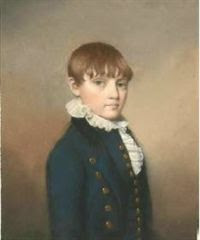 Windsor, Vermont, where the Republic of Vermont was declared in 1777, is sandwiched between Mt. Ascutney, which rises three thousand feet just east of the town, and the Connecticut River. By 1820, it grew to become a thriving center for trade and agriculture and the state's largest town. In 1835, a dam was built across Mill Brook to provide water power, and as factories began to make guns and machinery, as well as tinware, furniture and harness, the region became known as the Precision Valley.
Windsor, Vermont, where the Republic of Vermont was declared in 1777, is sandwiched between Mt. Ascutney, which rises three thousand feet just east of the town, and the Connecticut River. By 1820, it grew to become a thriving center for trade and agriculture and the state's largest town. In 1835, a dam was built across Mill Brook to provide water power, and as factories began to make guns and machinery, as well as tinware, furniture and harness, the region became known as the Precision Valley.On August 30, 1843, in Windsor, William M. Evarts married Helen Wardner, whom he had met the year he taught school in Vermont. Helen was an attractive woman and the intellectual match of her husband (and fertile). Bill brought his bride to the house in New York City on East Nineteenth Street, next door to Horace Greely in fashionable Union Square. While not outwardly socially ambitious, Helen soon became a dominant
 player in the circles in which the Evarts moved. While she joined the New York social scene, she obviously also pulled Bill back towards her home of Windsor.
player in the circles in which the Evarts moved. While she joined the New York social scene, she obviously also pulled Bill back towards her home of Windsor.The Evarts bought the Edward Curtis house, next door to the Constitution House, in 1846, for a country retreat. Windsor, at that time, was a quintessential New England town, marred only by the state prison near the center of town.
“It is a beautifully conducted institution. None but the most worthy are admitted, and disorderly and intoxicated persons, it seems, are not allowed. Owing to the great demand, we are unable to supply quarters to all, and so we take the worst; but as the worst of a Vermont population corresponds to the cream of a New York legislature, some idea can be formed of our high standard as jailers.”
In 1847, Windsor broke ground for a rail depot, and the station soon connected the town to Burlington on Lake Champaign, and down the Connecticut River to New London and Long Island Sound. When the connections were complete, you could travel to New York in eight hours. Evarts next bought the house next door, which he used for his many guests, and in 1857 he bought the big house, Runnemede.
Bill’s family, as well as his legal and social career in New York progressed rapidly. By 1848, three children had been born; Saturday nights was always reserved for the family or for entertaining from home. Evart’s mother, Mehetebal lived with the family until she died in 1851, and then nine more children were born between 1851 and 1862.
He undertook admiralty cases, property cases, and settled estates. He tried cases in Federal District court, the Chancery Court, and the Court of Appeals. He represented the heirs of Matthias Bruen in a complicated suit involving the estate of a famous tea merchant. In the collision case of the Narragansett, he took on admiralty law. In Walworth v. Farmers’ Loan and Trust Company he parsed the validity of a second mortgage.

James and John Harper started printing and publishing books in Manhattan in 1817; brothers Fletcher and Wesley joined them in the 1820s. The Harpers learned early to keep books in print and in stock, produce better yet less expensive editions than the competition, and be the first one on the dock
 when a ship came into harbor. Since there were no international copyright laws at the time, they frequented the docks waiting for the latest proofs from Great Britain. When a ship came in carrying a new title, the Harpers often had a new American edition on the streets within 24 hours.
when a ship came into harbor. Since there were no international copyright laws at the time, they frequented the docks waiting for the latest proofs from Great Britain. When a ship came in carrying a new title, the Harpers often had a new American edition on the streets within 24 hours.By the 1830s Harpers was the largest printer in the country. In 1833, a steam printing press was installed and the company became "Harper & Brothers". Harper bestsellers included Dana's Two Years Before the Mast, Webster's Dictionary, Jane Eyre and Wuthering Heights. Harper's New Monthly Magazine started publishing in 1850. By 1853 41 presses ran ten hours a day, six days a week, averaging 25 volumes per minute.
The plant included the most advanced printing and publishing equipment of its time, but in December 1853, the Harper plant caught fire. Damages were in excess of $1 million, and the insurance company was reluctant to honor the policy. The fire had evi
 dently been started by a match accidently thrown into a pan of camphene, used as a cleaning solvent. The insurance policy exempted liability for fire caused by the use of camphene.
dently been started by a match accidently thrown into a pan of camphene, used as a cleaning solvent. The insurance policy exempted liability for fire caused by the use of camphene.The Harper brothers retained William M. Evarts. Evarts argued the provision only referred to use of camphene for lighting (it was often used for lamps in the nineteenth century but was also known to be explosive). The court of appeals agreed with Evarts, and Harpers was able to rebuild.
William M. Evarts pocketed a handsome fee.







.jpg)


















 John Jay
John Jay.jpg)


